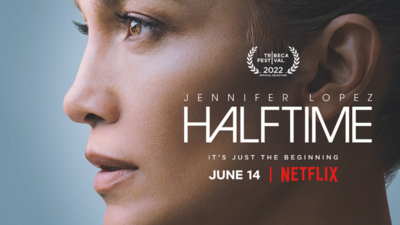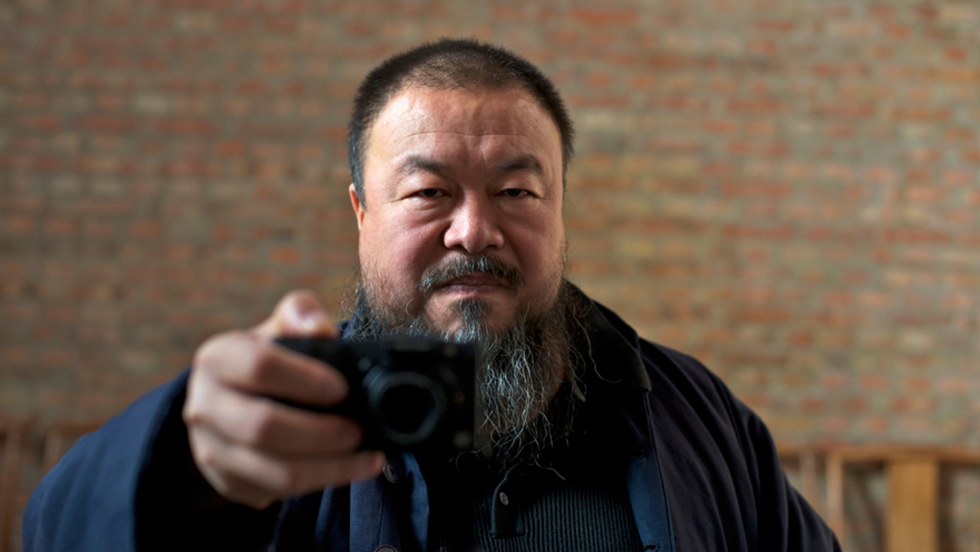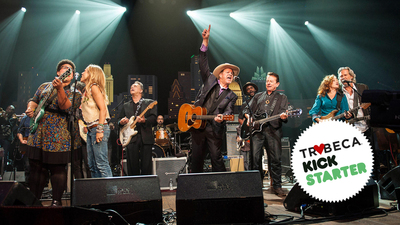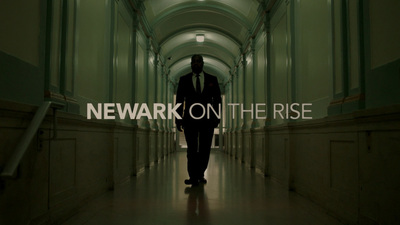
BY KRISTIN MCCRACKEN |
In “Ai Weiwei: Never Sorry,” Alison Klayman Skillfully Highlights the Artist's Defiant Charisma
For Ai Weiwei, “the role of an artist is to be focused on communication, engagement, and furthering conversation.” We all could learn a lot from the famed Chinese artist, and in Alison Klayman’s new bio-doc, we do.

In 2011, ArtReview named Chinese artist Ai Weiwei the most powerful artist in the world, but it's likely that few Americans are overly familiar with his moving work or his compelling life story. With her engaging, intimate, and wholly personalizing portrait, Ai Weiwei: Never Sorry, first-time director Alison Klayman hopes to right that wrong by enlightening audiences with his passion, courage, and charisma.
Ai Weiwei has steadily made headlines over the past decade, first as an artistic collaborator on the winning entry in the design contest for Beijing National Stadium—aka the Bird’s Nest—and subsequently for calling out the Olympics as “party propaganda” for the Chinese government when the Games were held in that stadium in 2008. Since then, he has become known as a political activist, intellectual critic, and dissident detainee, all the while using social media—Twitter, in particular—as a tool for spreading his many messages, often in defiance of the Chinese government.

Ai Weiwei was born in Beijing in 1957; his father, Ai Qing, was a modernist poet who supported the Communist movement. When Ai Qing fell out of favor with the Party the following year, he and his family were sent into hard labor exile in a western province, where they would spend the next 18 years, until Ai Qing’s name was finally restored.
At 21, Ai Weiwei began studying film in Beijing, falling in with a group of avant-garde artists before heading to the U.S. in 1981 as part of the first generation of Chinese to study abroad. He lived in the States for 12 years, ten of them in New York City (he studied at Parsons), where he met artists such as Allen Ginsberg, took over 10,000 photographs, and began to exhibit his work. When he returned to Beijing in 1993, Ai Weiwei published underground art books that served as an introduction of sorts (in Chinese) to contemporary Western artists. Since then, his art—quite conceptual at times—has ranged from architecture to sculpture, from photography to massive installations.

Klayman met Ai Weiwei when she traveled to China after graduating from Brown with a degree in history. “My intention post-graduation was to go abroad. I liked the idea of learning a new language, but [my travel] wasn’t driven by where I wanted to go, just that I wanted to go.” After an internship with NPR’s All Things Considered, she moved to China in 2006 with the hope of becoming a journalist—and the ultimate goal of someday making a documentary. Her initially-planned five-month stint in Beijing turned into four years.
“I did not go to China because I knew who Ai Weiwei was... Fast forward to 2008, and I have a working knowledge of Mandarin, and I was about to get a journalist visa,” Klayman recounts. “My roommate asked if I wanted to make a video for an exhibition she was curating at the gallery where she was working: Ai Weiwei’s New York photographs. She would bring home… these big black binders filled with contact sheet images. I think you can’t get any more romantic and gritty and bohemian than these photos. I looked him up and learned about how he spoke out about the Olympics [after designing] the Bird’s Nest. I saw what was going on his blog, and I said yes, I would love to do this project—it was just for fun, nobody paid me.”
That was a stroke of luck. In December 2008, when Klayman first met Ai Weiwei, she had a camera in her hand and was already filming him. “There was never the transition from person to documentarian,” she explains. “They said, ‘This is Alison, and she’s going to do a video for the show,’ and he said, Okay.’”
Over the next few weeks, as Klayman filmed Ai Weiwei, she began to understand what a charismatic figure he was, and how effective he was at convincing people—herself included—to view China and the Chinese people in a different light. “With the force of his personality… I think he really is a window into this world—it’s not just about him, it’s about the fact that there are a lot of people who care about these issues. He is just so engaging.”
Klayman soon realized that much of the footage she was getting did not fit into the gallery video. Ai Weiwei began talking about his blog, and national censorship, and the campaign he was starting up to memorialize the victims of the May 2008 earthquake—thousands of children who died in shoddy school building collapses, whose names were not being released by the government. “I bookmarked this in my head: follow up with this guy, there’s going to be more stuff [to cover], even if it’s just in my capacity as a journalist.”

While thoughts of a full-length documentary floated around in Klayman’s ambitions, she did not fully articulate her plans until the day when Ai Weiwei introduced Alison to someone by saying, “Oh, that’s Alison. She’s been filming me. She’s going to make a documentary.” And hearing him say it, Klayman recalls, was what set the project into motion.
Ai Weiwei is known for sharing his work, actions, and thoughts with a broad audience, first on his blog—before it was shut down—and later on Twitter, a platform that often circumvents Chinese Internet firewalls. So why do a documentary on someone whose life is so on display? “I think the value of this project, because he is someone who documents himself so much, it’s not necessarily about bringing things to light,” Klayman observes. “I think the value of the project is that it is an independent look at him. Somebody else making a movie about him, with that much depth, and with that much effort, had never been done before, and it’s different than him making his own movie. I was trying to put it all together, into the best story, the most entertaining film for people. Even though everything is out there in the public record, a lot of it is in Chinese. I mean, who [else] is going to obsess over what happened to Weiwei next, and next, and next…”
Klayman filmed him for the next two years, but by the time he was detained by the police in April 2011, she was already back in the U.S. editing the film. While she did not return to China during the 81 days he was held—“I am smart enough to know that that would not have been a productive thing to try”—she was able to speak out about Ai Weiwei’s detention from the safety of the West. “It was very much like channeling Weiwei,” she recalls fondly. “I felt like I had the best PR training for the last 2 ½ years, watching him give quotes all the time.”

In the film, Klayman asks Ai Weiwei to describe his art. He says he is a chess player: “Now I am waiting for my opponent to make the next move.” At first, the viewer wonders: Who is he talking about? Who is the opponent of art? Klayman explains, “I have asked him that too. I think for him, his answer is that in China, it’s the system, which is the Party. And it’s the system that sort of doesn’t allow for transparency or safeguard individual rights that he’s talking about.”
How does one describe Ai Weiwei? Is he an intellectual/activist/dissident? Or is he just an artist, with everything else falling under that umbrella? Klayman has thought about this too. “There were a lot of times where it felt like people were struggling [with how to describe him], and so they slapped on a label. The truth is, some of those labels fit much better now, but they were premature then. Dissident artist? Political artist? His art isn’t really political, but he is political.”
But Weiwei’s art does in fact seem political, especially when he is using a variety of media to challenge and expose what he sees as flaws in his government. Klayman elaborates, “Right, but not every piece is as explicit about what the message is. [I wonder] about activism and art—what’s the divide, and where does he end up on it? My conclusion is that he is an artist, and that he is also all these [other things]: public intellectual, political organizer... But I don’t ever think that he thinks of himself as taking off his artist hat to say something else. I think that throughout, he always defines himself as, ‘I am an artist by profession. This is what I do.’ I think for him the role of an artist is to be focused on communication, engagement, and furthering conversation. So all of these things are in service of this aim, which is fundamentally, for him, what an artist should be.”

One could also call him the first “social media artist,” using that medium like no one ever has before. Klayman agrees: “Exactly. And I think it’s really inspiring for people. I’ve had so many people say to me, ‘Oh, Twitter doesn’t have to be just for junky promotion! I am really inspired by what it can do.’”
Speaking of Twitter, I ask if he maintains his own account, @aiww. Klayman says, “Yes! I always tell people to add @aiww to any tweets they make about the movie. He retweets, and sometimes he writes back.” I confirm that he tweeted back at me the day before, much to my surprise, about an hour after I watched the movie—the immediacy of social media in action. As an avid follower, Klayman asks me which tweet I wrote. I had written that I had just watched the movie, and that “I am curious, inspired, hopeful, and maybe a little in love with @aiww.” And he tweeted back: “Maybe”?
Klayman is delighted with this exchange. “I saw that! That was so funny! That was in the highlight reel, I think, of times when he has made jokes in English. He does it all the time in Chinese—people are like, Weiwei, I love you! And he will respond.”
Ai Weiwei: Never Sorry opens Friday, July 27, in select cities, with more to follow in coming weeks. Find tickets.
 Like Ai Weiwei: Never Sorry on Facebook.
Like Ai Weiwei: Never Sorry on Facebook.
 Follow Ai Weiwei: Never Sorry, Ai Weiwei, and Alison Klayman on Twitter.
Follow Ai Weiwei: Never Sorry, Ai Weiwei, and Alison Klayman on Twitter.
Watch the trailer:


